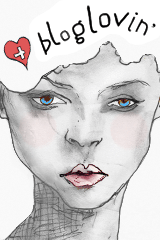*This is a collaborative post*
As parents, we want to instil good habits in our children from a young age, and personal hygiene is no exception. Teaching your toddler about personal hygiene sets the foundation for a lifetime of healthy habits. Not only does it promote physical well-being, but it also cultivates a sense of responsibility and self-care. Below is a guide that explores the benefits of educating your little one about personal hygiene and provide practical tips to make the process enjoyable, inspired by the teachings of the best nursery in Brighton.
Promotes Health and Wellness
Teaching your toddler about personal hygiene is essential for their overall health and well-being. Regular handwashing, for example, can significantly reduce the risk of infections and illnesses. By instilling this habit early on, you're giving your child a powerful tool to protect themselves from harmful germs.
Boosts Confidence and Self-esteem
When toddlers learn to take care of their bodies, they develop a positive self-image. Feeling clean and fresh helps boost their confidence and self-esteem. This newfound confidence can have a positive impact on their social interactions and relationships with peers.
Establishes a Routine
Introducing personal hygiene practices creates a structured routine for your toddler. Consistency is key, and establishing a routine helps your child know what to expect each day. This predictability fosters a sense of security and stability.
Fosters Independence
Teaching personal hygiene empowers toddlers to take charge of their own bodies. Simple tasks like brushing teeth, washing hands, and combing hair allow them to develop a sense of independence. This newfound autonomy is a crucial aspect of their overall growth and development.
Prepares for School and Social Situations
Personal hygiene is a crucial skill for a child's readiness to enter school and engage in social activities. A clean and well-groomed appearance contributes to a positive first impression, which can lead to better social interactions with teachers and peers.
Practical Tips for Teaching Personal Hygiene
Lead by Example: Children are more likely to adopt good hygiene practices if they see their parents or caregivers doing them. Make personal hygiene a family affair by demonstrating proper techniques.
Make it Fun: Turn hygiene routines into enjoyable activities. Use colourful soaps, sing songs while washing hands, or let your toddler choose their toothbrush and toothpaste with their favourite characters.
Use Positive Reinforcement: Praise your toddler for their efforts, no matter how small. Encourage them to take pride in their personal hygiene accomplishments.
Be Patient and Consistent: Toddlers are still learning and may need gentle reminders. Stay patient and provide gentle guidance throughout the learning process.
Teaching your toddler about personal hygiene is a valuable investment in their future well-being. By promoting good hygiene practices from a young age, you're instilling lifelong habits that will contribute to their overall health, confidence, and independence. Remember to make the learning process enjoyable and be a positive role model for your little one. With your guidance and support, your toddler will develop the skills they need to thrive in all aspects of life.
*Photos via Pexels
Twitter | Facebook | Bloglovin' | Instagram
Subscribe to GirlGone Dreamer by Email



No comments :
Post a Comment
Note: only a member of this blog may post a comment.